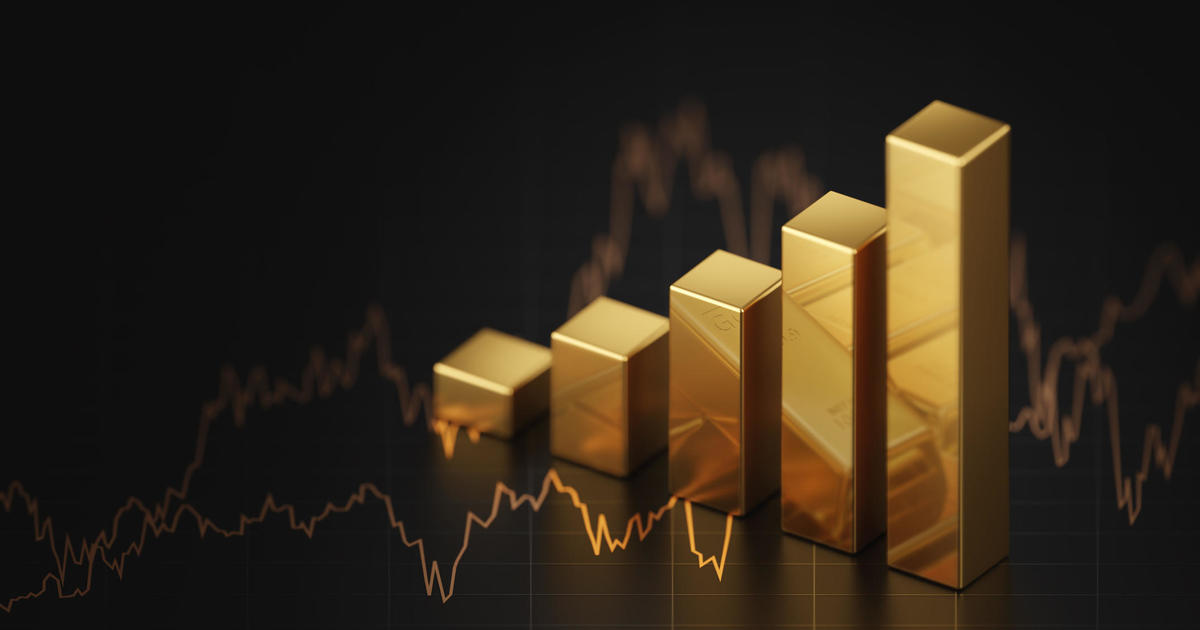The economic – and human – impact of the rise of robots and AI
NEW YORK -- As a new generation of robotic technology is developed to supplement, or in some cases replace, the work of humans, the question remains: How likely is it that robots will take people's jobs in large numbers? Which jobs are most vulnerable? And what is the possible economic -- and human -- impact of the rise of robots?
Entrepreneur and author Andrew Yang, who is running for president in 2020, said a robot isn't literally going to walk into the room and say, "I'm here to do your job." But obvious changes are going to take place, he said.
For example, self-driving vehicles could threaten the livelihoods of the nation's 3 million truck drivers as the technology improves and becomes more widely incorporated over the next decade or so. In addition, millions of retail jobs could be lost as malls continue to close as more people shop online.
- Watch Now: "Replacing Humans: Robots Among Us," a CBSN Originals documentary (also available in the video player above)
"Self-driving cars, retail, cashiers, call center workers — those are the obvious innovations," said Yang, author of "The War on Normal People: The Truth About America's Disappearing Jobs and Why Universal Basic Income Is Our Future."
Other less obvious innovations "are working their way through our economy" and will displace people such as bookkeepers, insurance agents, even law school graduates, he said.
"We're going through a historic set of changes that are going to displace millions and millions of American workers, and we need to think much, much bigger about how we're going to adjust and adapt to this new sort of economy," he said.
One solution Yang advocates is universal basic income -- a $1,000 monthly government payment to working-age adults, no strings attached, to help people make the transition.
Ruchir Sharma, chief global strategist at Morgan Stanley Investment Management and author of "The Rise and Fall of Nations: Forces of Change in the Post-Crisis World," said that over long periods of time, "it's not jobs that are destroyed but professions that are destroyed."
"There will be some professions where the robots and automation and AI will come and basically take over," he said. But he noted: "New professions will spring up, where human beings will come and do more."
Sharma acknowledged the toll this transition will take on some workers, but said, "That's just how human history is."
"Bottom line is that the picture today is much more optimistic than what people acknowledge," he added.
Economic impact
A 2014 Pew Research survey of nearly 2,000 experts found that 48 percent said they expected robots and artificial intelligence would have a significant impact on the economy by 2025.
Sharma, however, believes that far from being a threat to workers, advances in robotics and AI could be a good thing for the global economy.
"Robots are coming just in time to help you deal with this population implosion that's taking place in many countries like Japan," he said. Countries in which the robot density is the highest -- Japan, South Korea, China, Germany -- are all nations where the working-age population is declining, he said.
Japan's population of 120 million is the oldest in the world. Nearly 34 percent of the population is over 60 years old, and by mid-century, the number is expected to jump to over 42 percent of the population. At the same time, younger people are having fewer children or none at all. Some studies project that in 50 years, Japan's population will be down to half of its current numbers -- a trend unprecedented in modern history.
A "CBSN Originals" documentary explored how technology is part of the solution to that problem. Especially in Japan, robots are helping do tasks that humans aren't doing, due to either a shortage of workers or because they don't want to do them.
"The robots are coming, but the robots are coming in only areas where the human beings are naturally vacating," said Sharma.
Dan Patterson, a senior reporter at TechRepublic, says the robots of today are fairly rudimentary compared to what the future may hold. The goal, he explained, is artificial general intelligence. What we call AI right now "is really just a collection of machine learning, predictive analytics and other types of algorithms that help us do different things, like a utility," he said.
Artificial general intelligence, on the other hand, "is human-like intelligence that can think and learn on its own," he said. "This is called recursive learning, where robots learn using recursive techniques, just like a child learning to tie a child's shoe. If I look down and I tie my shoe the wrong way several times, eventually I will figure out -- through mistakes -- how to do it correctly." He said that using data, robots may eventually do the same thing.
Yang says we're currently experiencing "the greatest series of technological and economic shifts in our history." He said artificial intelligence has not yet "done that much that's really commercially valuable." But he said that will change in the next several years, and that AI is going to be able to do things that currently require whole departments of people.
"We are at an inflection point where AI is about to reach a point that will displace many, many millions of workers," he said.



